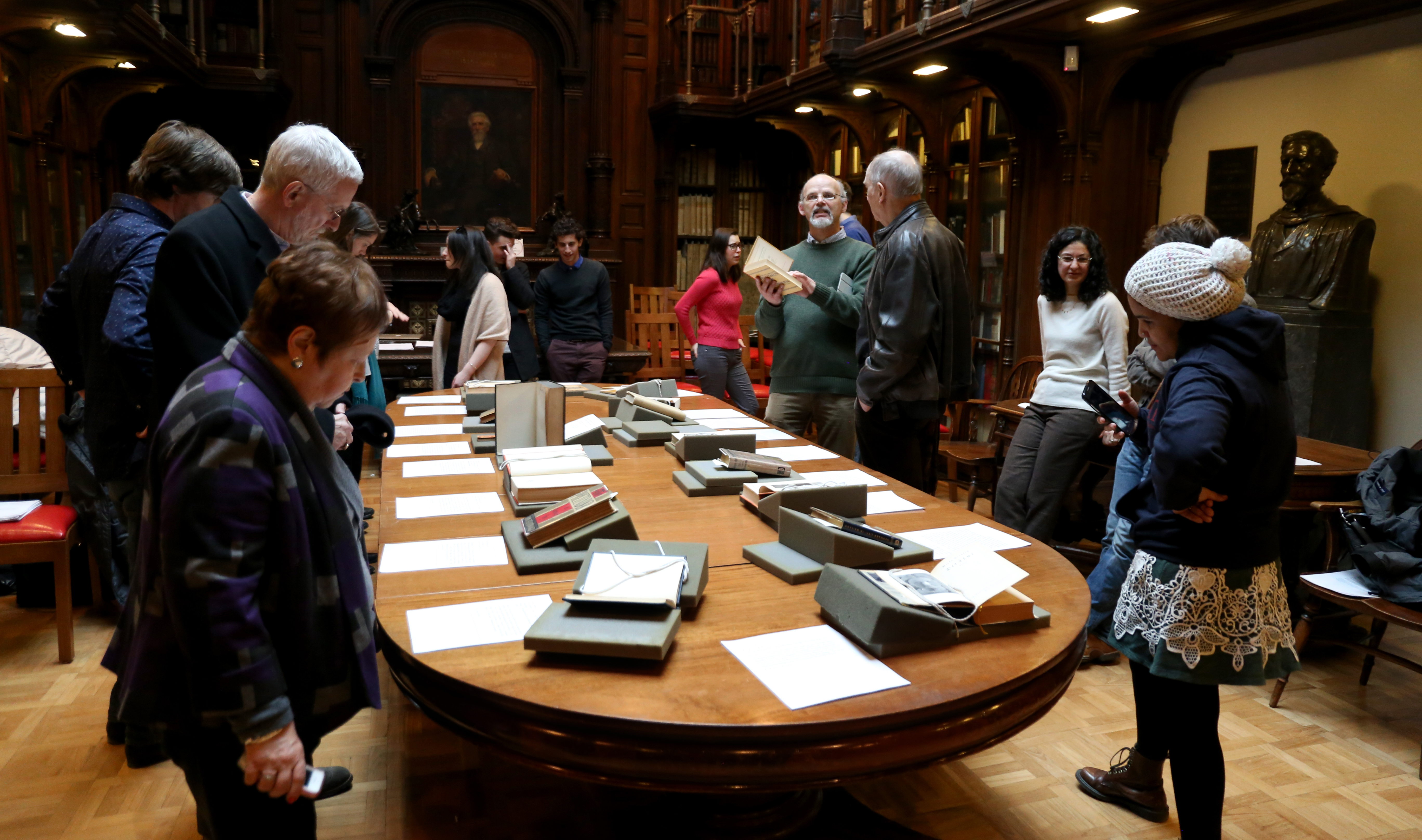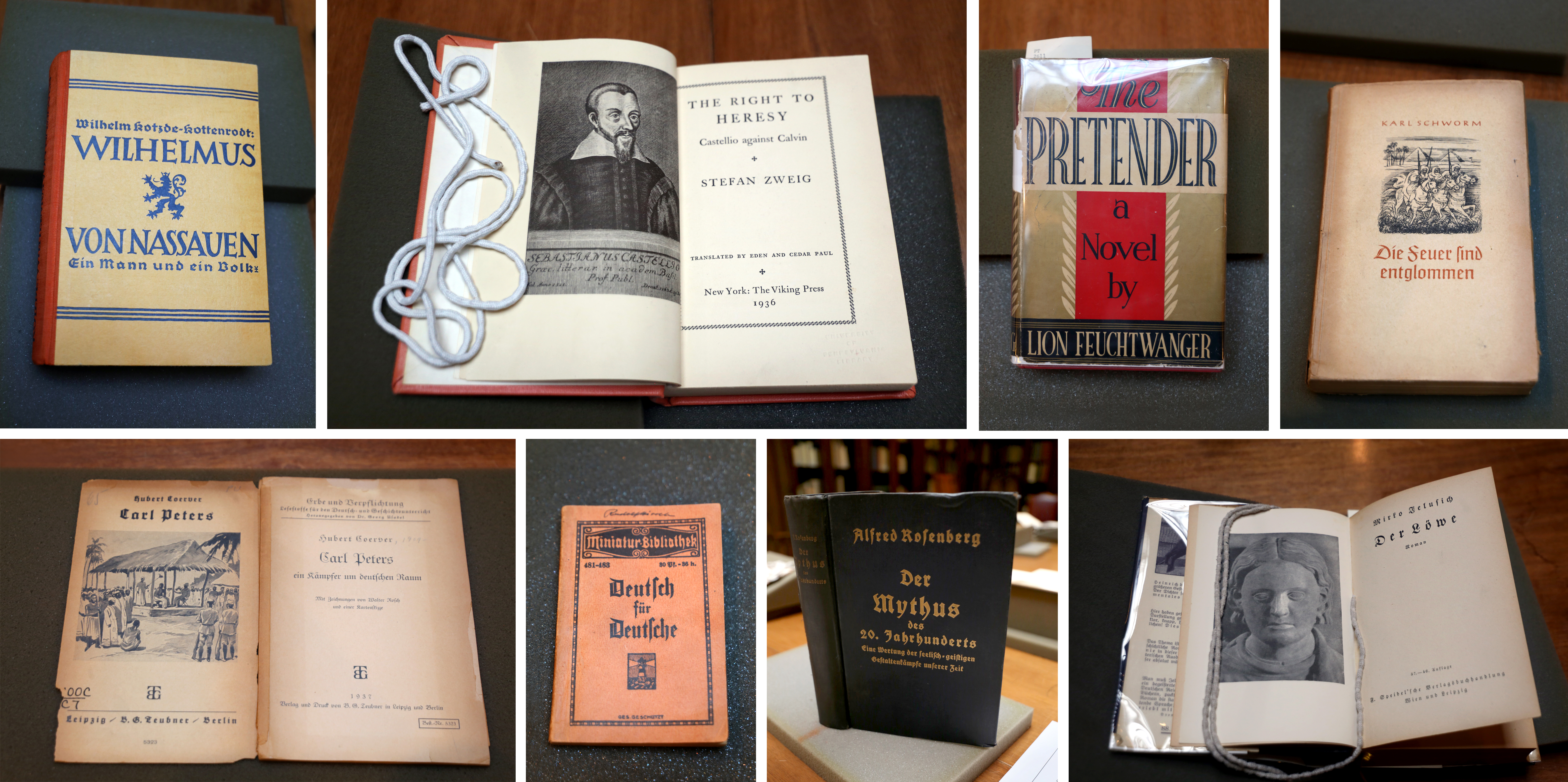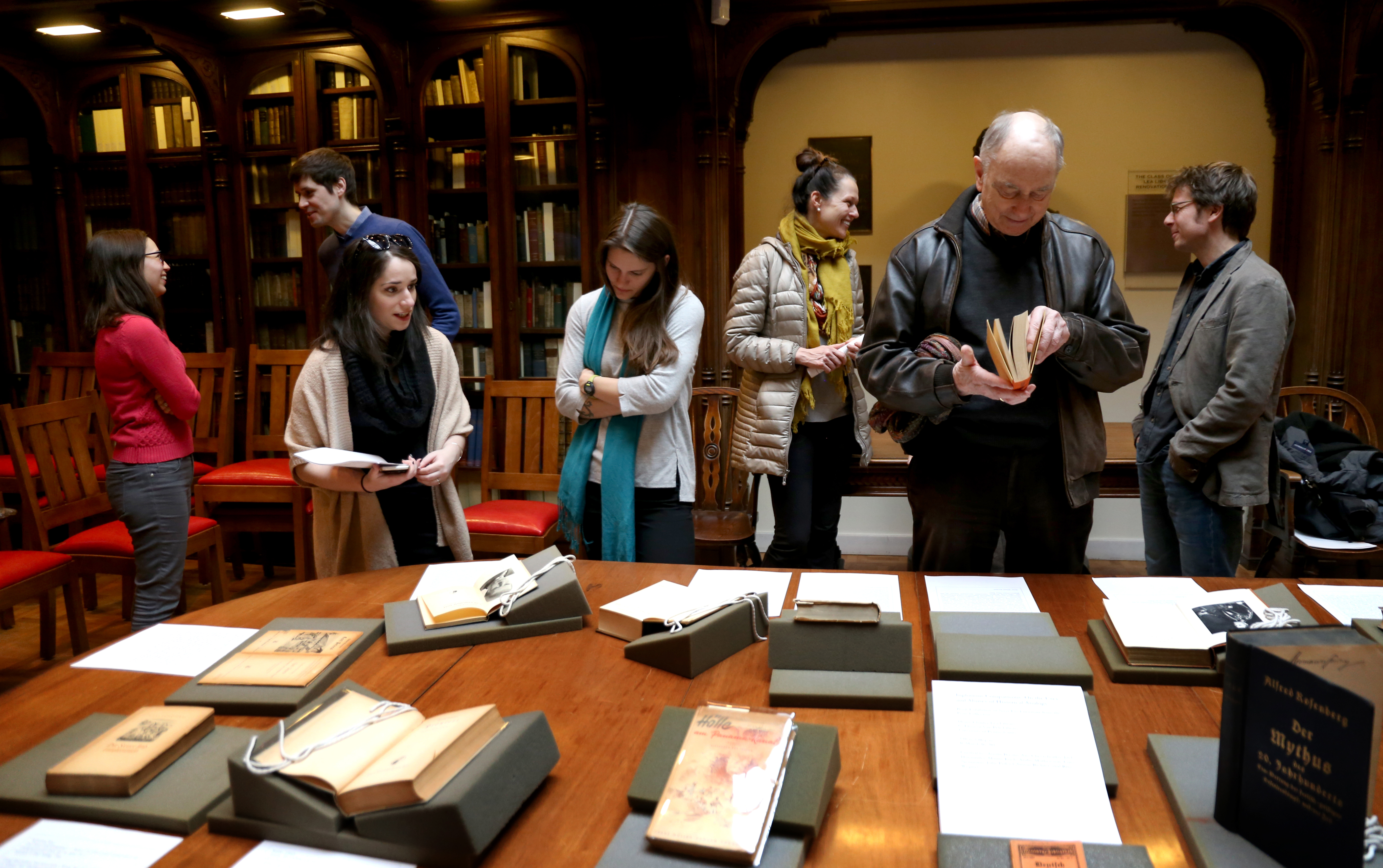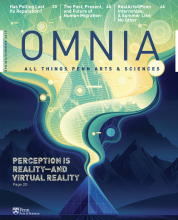References to Hitler and the Nazis by activists and pundits are thick in the air today. But while George Santayana said that those who do not remember the past are condemned to repeat it, what about how you remember it? Which history do you choose?
This semester, Writing in Dark Times—a first-time class taught by Professor of Germanic Languages and Literatures Simon Richter—is causing students to consider why we look back to understand our own times, and how to do it responsibly.
Taught entirely in German, the class is examining the literary marketplace in Germany from 1933 to 1945, to see how writers allied with the Nazis and those in exile, concentration camps, or hiding behaved and wrote. As part of their studies, students worked with a Penn Libraries special collection of about 1,500 Nazi-era books that were spared destruction after the war through an effort of the Office of Strategic Services (OSS, the forerunner to the CIA) and the Library of Congress. This was the first time the collection was focused on as a whole.
They found that Germans not only turned to history for a frame of reference; they turned the tide of literature. “The 1930s were the heyday of the historical novel in Germany,” says Richter. In 1933, 175 were published; five years later the number was almost 350. The class also found some trends in the periods of history written about: Writers who opposed the Nazi ideology largely chose Roman antiquity and the religious and political strife of the Early Modern era (roughly 1550-1750). Those more in sympathy with the movement used a mythical Nordic history and the Middle Ages, as well as the German colonization of Africa in the late 1800s and the First World War.
“The figures they chose to write about tell us a lot about how they envisioned their era and how they saw that reality playing out,” says Austin Bream, C’17, W’17. Each student chose one book to prepare for an exhibit. Bream selected Der vom Gutenberg, a biography of Hans Gutenberg by Wolfram von Hanstein. “Von Hanstein calls Gutenberg one of our greatest sons of history. It’s interesting to see the language about a figure we think today was important but not this kind of nationalistic character.”
Martin Koch, W’18, presented Ulrich Sander’s Pionere (The Pioneers), set during World War I, and was struck that Sander didn’t glorify war the way you might expect of a Nazi author at that time. “You wouldn’t expect him to paint this beautiful poetic picture of peace, talking about average soldiers’ experiences as opposed to these war heroes.”
Both Sander and von Hanstein went through periods of supporting and then criticizing the Nazi party. “I think what a lot of authors we looked at—especially some that agreed with some of what the Nazis were saying—thought, well, here’s a great opportunity to get my books out,” says Bream.
Koch was surprised by the amount of self-censorship that went on. “We talk about banning books, but it actually seemed to have happened somewhat organically at first,” he says. “There was this unspoken notion of “Well I’m not going to write this because it’s going to be bad news for me.”
“The tentacles reached further into society than just censorship,” says Bream. “Ultimately the genres that people wrote in changed. The publishers people used changed, the financial struggles of publishers, the way you wrote a book.”
The books that the class chose were displayed in the library on March 16, as part of the Department of Germanic Languages and Literatures’ series Inglorious Comparisons, which has been designed to look at the merits of comparisons of the U.S. today to the rise of European fascism.
Ultimately the class is studying how these historical comparisons helped people to formulate their views and ideas about how to interact with the new government. Bream says, “Ultimately what’s happening in U.S. is definitely new, whether it’s good or bad, and having a model for how to interact with that newness is important.”
“And historical context is crucial,” adds Koch. “One of our readings compared the first press conference with Goebbels and the first press conference with Sean Spicer. They seem pretty close, but if you look at the broader picture, perhaps that comparison doesn’t really do much for us, or at least deserves to be qualified in some way.”






